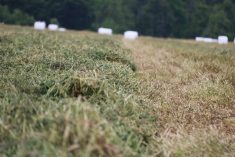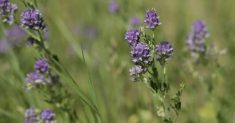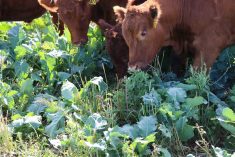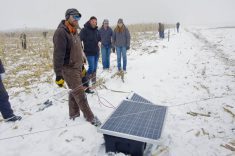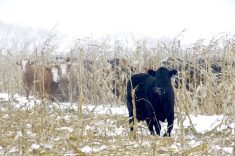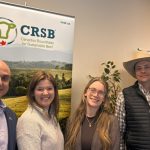A new mentor program may prompt more farmers to add rotational grazing to their management plans.
The Manitoba Forage and Grassland Association (MFGA) has provided the Manitoba Association of Watersheds with access to roughly 15 grazing experts. Those experts are spread across the province and will be made available for one-on-one mentorships through the program.
Why it matters: Producers who want to implement rotational grazing can get the government to foot part of the bill, and a new mentor program aims to help as many producers as possible get the most from the opportunity.
Read Also
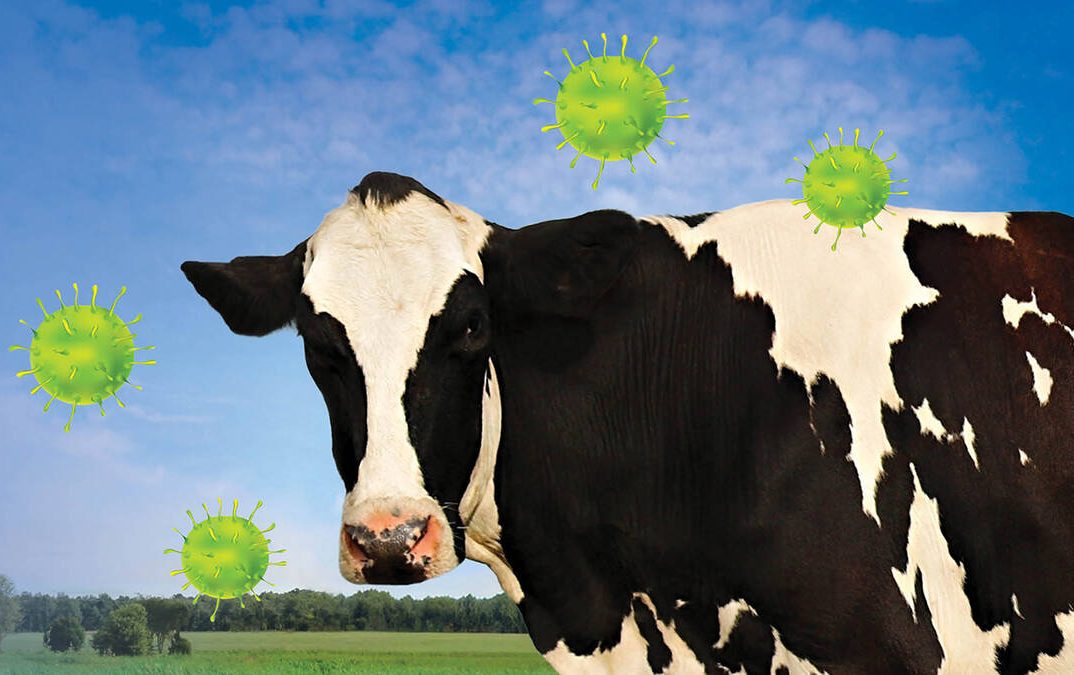
Researchers stay on trail of bovine bird flu’s origin
Canada’s dairy cattle herd is so far spared from avian flu, and work continues to contain its spread in the U.S., but the disease is far from gone.
The goal is to help farmers access funding programs delivered through the watersheds association. Mentorships will focus on grazing strategies and on-farm best management practices (BMP) that are eligible for funding under the Prairie Watersheds Climate Program.
That program has up to $40 million in project funding to divvy out and is one of 12 programs funded nationally by Agriculture and Agri-Food Canada’s On-Farm Climate Action Fund. The program is delivered in Saskatchewan and Manitoba by each province’s watershed district association.
“MFGA has been a strong partner within the Prairie Watersheds Climate Program,” said Garry Wasylowski, the watershed group’s board chair. “We look forward to their services being available to support Manitoba’s watershed districts in their delivery of the rotational grazing BMP.”
The watersheds climate program covers three types of BMPs: rotational grazing, cover crops and nitrogen management. The rotational grazing stream, in which the mentorship program will operate, includes projects such as new fence and water system installation, pasture improvements or the creation of a grazing plan.
Infrastructure projects can receive $18,000 per quarter, to a maximum of $75,000. Producers who seed legumes into pasture can get $35 per acre, up to $75,000, while producers can get up to half the cost, up to $400, of creating a grazing plan.
Meet the mentors
MFGA grazing mentors come from the association’s network, either as board members or supporters.
Executive director Duncan Morrison said the mentorship program was initiated to get more farmers into the rotational grazing funding stream.
“There’s been a tremendous amount of interest in the other two BMPs … but with the BMPs around grazing, there’s not quite as high of a threshold of interest,” he said.
Watersheds executive director Lynda Nicol said slow uptake of the rotational grazing program is at least partly because it is new.
“We have already heard from a lot of our watershed districts that there is increased interest around rotational grazing. We’re seeing a lot more applications coming through the door.”
While she said the mentor program will likely increase interest, tapping into the MFGA’s expertise was always part of the plan.
“The MFGA was one of our original supporters when we were putting together our application for the On-Farm Climate Action Fund,” she said. “They’ve been an integral partner throughout this entire process.”
Nicol said the mentor program will leverage the strength of MFGA’s network to benefit Manitoba producers interested in trying new things.
“One of the exceptional things about the MFGA network is that they’re early adopters,” she said. “These folks have been doing a lot of these practices for a long time and are in a position to provide real expertise from what they’ve already done on-farm—the things that worked and the things that didn’t work—to help people make better decisions.”
The MFGA’s grazing plan approach will be organized by board alumnus Larry Wegner.
“The idea is to give the producers the skill and information they need to be successful,” he said. “The mentors are here to make sure the new producers that are trying this succeed.”
Wegner has managed his herd with planned grazing for the past 20 years. Things have changed since then, he said, and he hopes to see producers opt into the new program so he and other mentors can share what they’ve learned.
“We can do so much better than we have in the past. Pasture management for livestock has been very minimal and there’s so much more we could do to make things better,” said Wegner. “Poor grazing management will ruin the land as fast as anything else.”
The program is also expected to help producers deal with some of the finer details of the grant process. Producers must get their grazing plan approval by a certified agrologist under the program. Morrison said four of the 15 mentors have that certification.




